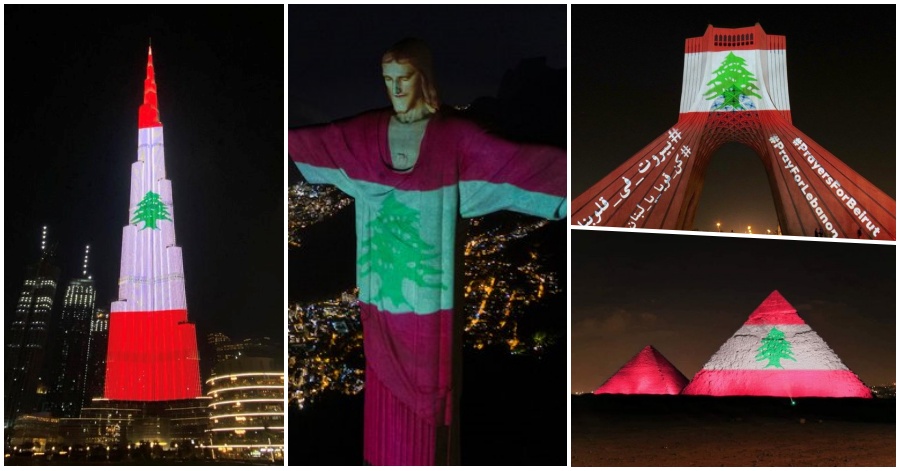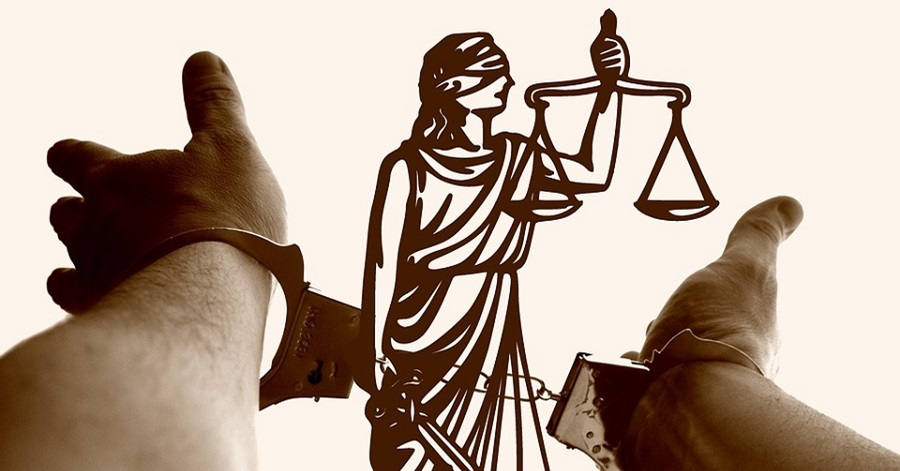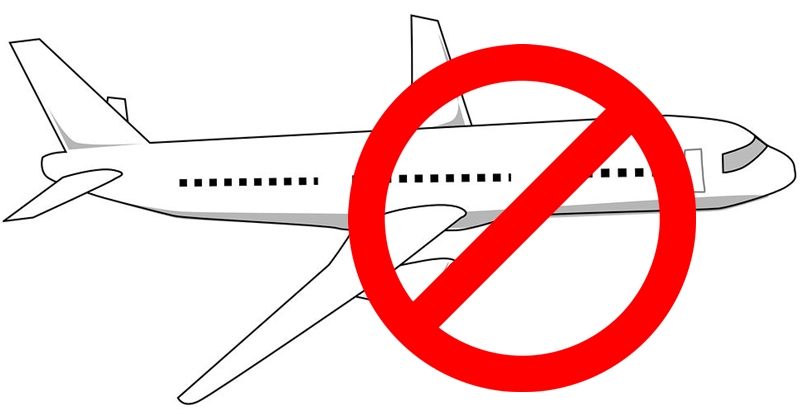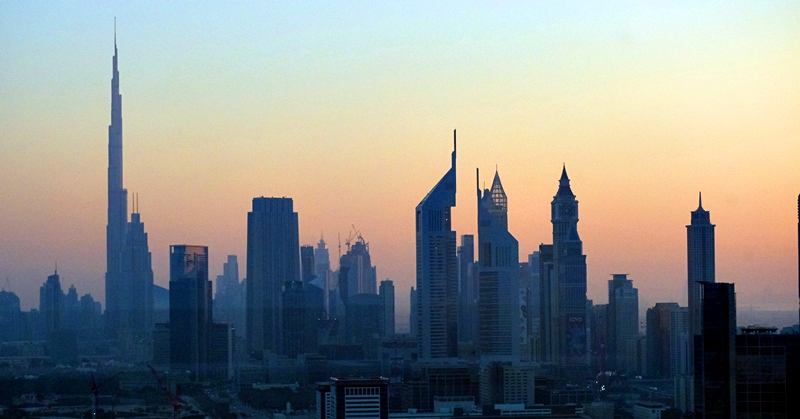Few hours after the massive blast at the port area of the Lebanese capital, the hashtags #PrayforLebanon and #PrayforBeirut trended on social media.
And as people began to join forces together to voice out their support for the victims, and residents of Beirut and Lebanon, famous landmarks around the globe lit up with the flag of Lebanon in solidarity with the victims of the explosion.

Look: Famous Landmarks Light Up with Lebanese Flag in Solidarity after Beirut Blast
The blast, which obliterated almost the entire city’s port, is suspected to have been caused by seized explosives that were stored in a warehouse at the port.
The number of reported fatalities was close to 100, while around 4,000 people have been injured from the incident. And with hundreds more still missing, authorities expect that the number of fatalities and casualties will continue to rise in the following hours.
In lie with this, Lebanese Prime Minister Hassan Diab declared a national day of mourning and promised that those responsible for the “catastrophe” would be held accountable.
Iconic Monuments Light Up in Solidarity with the Victims of the Beirut Blast
Meanwhile, in Brazil, the iconic statue of Christ the Redeemer was projected with the Lebanese flag in memory of those who lost their lives in the blast and show solidarity to the people in Beirut who are still suffering from its aftermath.
📸 Rio's Christ the Redeemer illuminated by colors of the Lebanese flag to pay tribute to victims of the devastating Beirut blast. https://t.co/YkhrPdftrn pic.twitter.com/mNQLfvbqMH
— ABC News (@ABC) August 7, 2020
Few hours after the catastrophic event that hit Lebanon, the official Twitter account of Dubai’s iconic landmark, the Burj Khalifa, posted a photo as it was lit up with the colors of the Lebanese flag, captioned: “In solidarity with our brothers and sisters in #Lebanon”.
https://twitter.com/BurjKhalifa/status/1290739073359982594?s=20
On Tuesday night, the iconic pyramids of Giza in Egypt also shone bright with the colors of the Lebanon flag in solidarity with the victims of the tragic event.
#Egypt's Giza pyramids were illuminated on Tuesday night with colours of #Lebanon flag in solidarity with victims of #BeirutBlast pic.twitter.com/fBiw43k9v2
— DNE Buzz (@Dnebuzz) August 4, 2020
In Canada, the CN Tower displayed the colors red, white, and green, in remembrance of the victims in Beirut.
We see you and our hearts feel pain for those suffering from this tragedy. pic.twitter.com/boDgmcFheN
— Palmateer's Mask ☘🇨🇦 (@jigs35) August 6, 2020
Meanwhile, the Tel Aviv municipality building also joined the light-up in solidarity with the people of Lebanon.
השלום יבוא כשכיכר העיר בביירות תואר בצבעי דגל ישראל pic.twitter.com/1x1zvn3wTv
— עמית סגל (@amit_segal) August 5, 2020
In Iran, Tehran’s Azadi Tower projected the Lebanese flag on its facade.
#Iran‘s Azadi Tower https://t.co/0SOvD5dJTR
— Adnan Tabatabai (@A_Tabatabai) August 5, 2020
Neighboring Gulf state, Kuwait Towers in the Ras Agouza area, also lit up with the colors of the Lebanese flag.
الآن، أبراج #الكويت تعانق #لبنان …#بيروت_منكوبة #بيروت_في_قلوبنا pic.twitter.com/0QizTihbMi
— Ricardo Karam ريكاردو كرم (@RicardoRKaram) August 5, 2020
And as the other iconic landmarks across the world lit up in support of the people of Lebanon, France’s Eiffel Tower went dark to join Lebanon in mourning.
🇫🇷 Par solidarité envers la population de #Beyrouth et du #Liban, je m'éteindrai ce soir à minuit 🙏🇱🇧
🇬🇧 To show solidarity to the people of #Beirut and #Lebanon, I will turn off my lights at midnight 🙏🇱🇧 pic.twitter.com/6WSIQA8UiJ
— La tour Eiffel (@LaTourEiffel) August 5, 2020
The hashtags #Lebanon and #Beirut trended all over social media with many saying the explosion appeared “apocalyptic”. People also shared images from before and after the explosion to show the massive scale of devastation.
Our hearts stand with you Beirut. May the comfort of God help you during this difficult time. #PrayForLebanon pic.twitter.com/4Xtp2q6WZl
— Mehreen Syed (@iMehreenSyed) August 5, 2020
Solidarity with people of Beirut.
Solidarity with people of Lebanon.#PrayForLebanon #prayforbeirut pic.twitter.com/SzuJZTg4YB— Carlos Latuff (@LatuffCartoons) August 5, 2020
Solidarity with people of Beirut.
Solidarity with people of Lebanon.#PrayForLebanon #prayforbeirut pic.twitter.com/SzuJZTg4YB— Carlos Latuff (@LatuffCartoons) August 5, 2020
#PrayForLebanon
Sending my deep condolences to brothers and sisters of Lebanese🙏… This year is really a cursed year.. All we can just pray for the betterment of them.. My thoughts and prayer is with you ❤️ we wish that everything get back to normal..
#staystrong 🙏 pic.twitter.com/W9heh9j5Ni— Nikita kumari (@NIKI17SOFTY13) August 5, 2020
https://twitter.com/Iiferelatable/status/1290863920639430658?s=20
Can't believe that in the middle of this pandemic ,people in Lebanon is now facing another disaster. Sending prayers and deepest condolences to our dear Lebanese brothers and sisters. May God always guide you.#PrayForLebanon pic.twitter.com/ovGuJQ8K47
— Farooq Nawaz Sahil (@DoctorFNS) August 5, 2020
https://twitter.com/hansoldvernon/status/1290814296641830913?s=20
https://twitter.com/JediQureshi/status/1290880973593358337?s=20
MY heart Aches For Whatever That Happened In Beirut,LEBANON Because Its So Disturbin & Sad…My Thoughts And Prayers Are With Y’all People And Families In Lebanon..May Allah Bring Ease To All Those Who Are Suffering…🥺💔 🕊 #prayforbeirut pic.twitter.com/ApGpJOV72K
— usama_ernesto (@usamaernesto1) August 5, 2020
The catastrophe comes at a time as Lebanon’s economy struggles with a financial crisis as it attempts to deal with the coronavirus pandemic.
The nation has also witnessed increasing tensions between Israel and the militant Hezbollah group along Lebanon’s southern border.
ALSO READ: Bride’s Wedding Photoshoot in Beirut Captures Horrific Explosion




